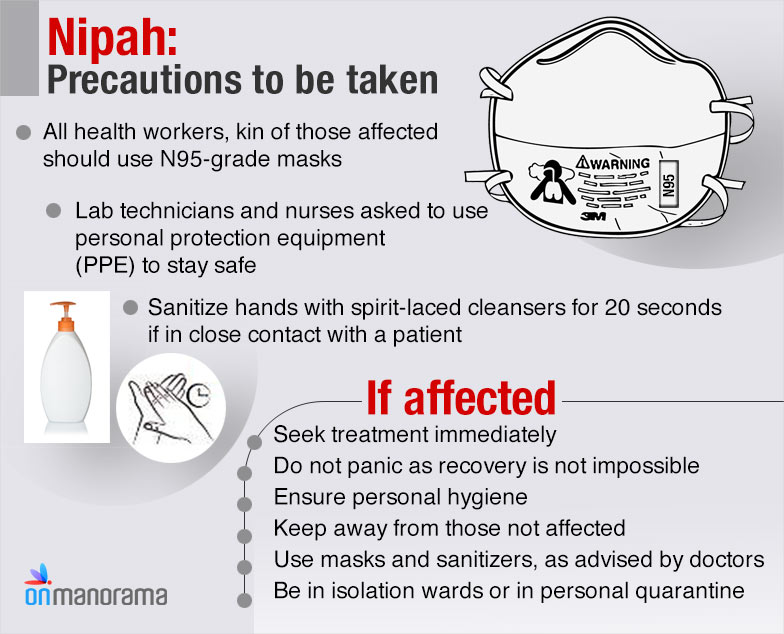With Nipah being confirmed, several rumours and speculations are being spread on social media. Here is a checklist of myth and facts.
Myth: Always wear a mask outdoors as Nipah spreads through air.
Fact: Only those who directly interact with the patient and health personnel need to wear a mask. The virus does not spread through air. Infection is caused only by direct contact with a virus-affected person or animal.
Myth: Avoid chicken as it is the source of Nipah.
Fact: Such rumours circulated when Nipah was reported in 2018 also. However, fowl has no connection with Nipah. The culprit is bat. The body fluids and excretions of bat have been found to spread the virus.
Myth: Do not touch dogs and cats.
Fact: The virus can survive in all pets like cows, cats and dogs. However, there has been no evidence that they spread Nipah. Wash your body thoroughly with soap if you come into contact with body fluids of domestic animals.
Myth: Do not eat fruits.
Fact: Avoid fruits that are bitten by birds and animals. Similarly do not eat fruits with broken skin or scratch marks. All other fruits can be eaten after removing the skin. Fruits that fell on the ground have to be avoided. People having fever can eat fruits containing vitamin C.
Myth: People caring for Nipah patients spread the disease.
Fact: The disease may spread only to people who attend to the patient before Nipah is diagnosed. When symptoms of Nipah are detected, the medical personnel wear personal protective equipment (PPE). This prevents the spread of the virus. However, infection can be caused when the patient is approached without the PPE or by handling the clothes and items of the patient carelessly.
Myth: Do not drink well water as it may contain bat urine.
Fact: the Health Department has issued instructions to ensure that the excreta of bats does not mix with the well water and other sources of drinking water. However, boiled water is totally safe.
Myth: If you have fever and headache, it is Nipah.
Fact: Fever and headache are symptoms of Nipah. But everyone who shows these signs may not have the virus. If the following conditions persist take care: fever, headache, severe fatigue, cough, vomiting, muscle pain, diarrhoea, anxiety and encephalitis. People having fever should avoid treating themselves and seek medical care.
Things to remember
Soap is an ideal preventive method against Nipah. Wash hands several times a day with soap. Remember to do that before having food. Spent at least 40 seconds to wash hands. Nipah is an RNA virus enveloped in a sheath. This sheath develops cracks on contact with alkali, acid or alcohol, destroying the virus. As soap is an alkali, the virus would perish on its use. But people who remain closer to the patient have to use PPE.
Things to do in hospital
• Ensure that handkerchiefs are taken when visiting a hospital.
• Do not use the OP ticket or newspaper to cover the face while coughing. Use a handkerchief over the nose and mouth.
• After the cough stops, wash hands thoroughly with soap.
• Never throw used tissue papers and masks indiscriminately.
• Do not spit in the surroundings.















